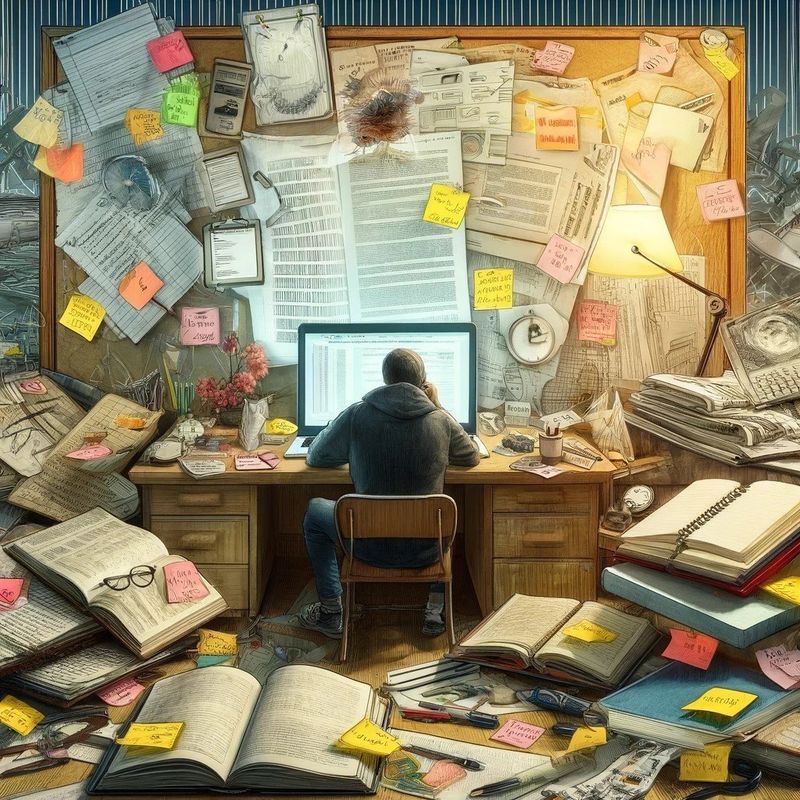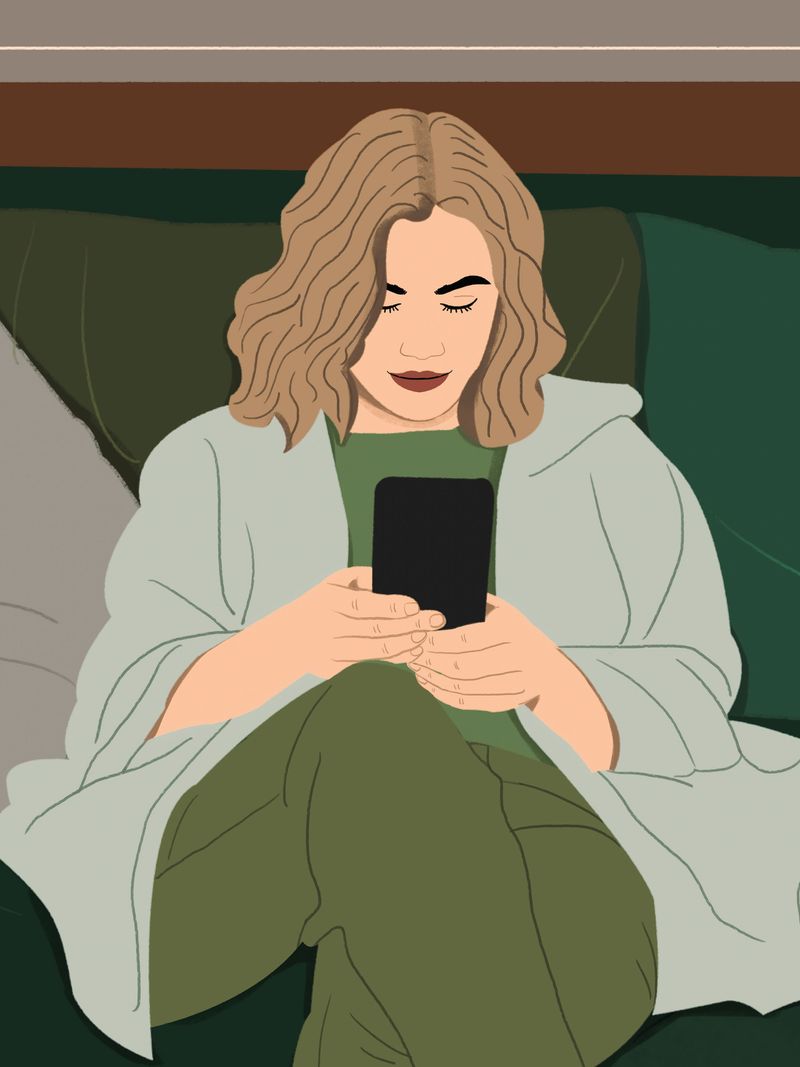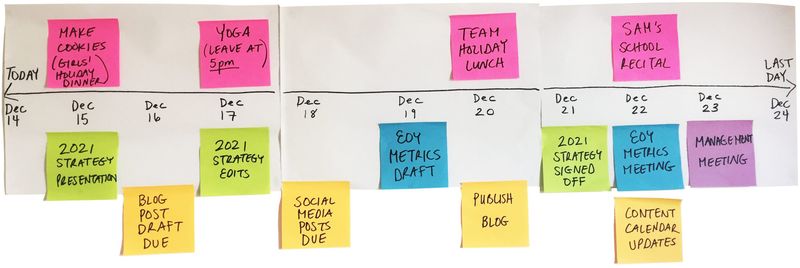19 Things People Do When They’re Mentally Checked Out And Barely Even Functioning
When emotional exhaustion or burnout sets in, it manifests in subtle yet significant ways. These behaviors often go unnoticed by others but are clear indicators of someone barely functioning.
This blog explores 19 such signs, offering a gentle and validating perspective to those who find themselves in these quiet struggles.
1. Zoning out mid-sentence without realizing it

Amid a conversation, they’re there yet not there, as if listening from another room. Words turn into a jumble of sounds, the mind taking a vacation without notice. It’s not intentional, just a drifting away where reality blurs softly at the edges. Sometimes, eyes glaze over, and the conversation carries on without them. It’s like watching a movie with the sound off, where scenes change and the plot’s forgotten.
People around might not notice at first. To the checked-out, the world feels distant like watching life through a foggy window. These moments are brief but frequent, a quiet getaway from the noise of life. If asked about the details, there’s only a vague recollection, a patchwork of what just happened.
In these pauses, their mind seeks peace, even if only for a moment. It’s a subconscious response to feeling overwhelmed, a coping mechanism when life’s too loud.
2. Starting tasks but never finishing them

The desk is a battlefield of half-finished projects and scattered thoughts. To-do lists start with good intentions but end up as reminders of what wasn’t done. It’s not about procrastination; it’s the mental fatigue making decisions and actions feel like Herculean tasks.
There’s an urge to start fresh each day, but the weight of uncompleted tasks lingers in the background. They begin with energy, but somewhere along the way, the motivation fades. It’s not laziness but a struggle to find focus in the chaos.
When mentally checked out, even the simplest task demands energy they can’t muster. Each attempt feels like walking through mud; progress is slow and exhausting. Yet they try, hoping each new beginning might be different. They wish for clarity but often find themselves stuck in a loop of beginnings without ends.
3. Saying “I’m fine” on autopilot

“I’m fine,” they say, with a smile that doesn’t reach their eyes. It’s a reflex, a shield against deeper questions they’re not ready to answer. In the workplace or among friends, this phrase becomes a mantra, a way to blend in and keep the focus elsewhere.
There’s a comfort in these two words, a simplicity that hides the complexity underneath. No need to explain or reflect, just a default response that keeps the world at bay. It’s easier than admitting the truth that they might not even know themselves.
Inside, they hope someone sees through the facade, yet fear what vulnerability might bring. Saying “I’m fine” is a way to maintain control when everything feels uncertain. It’s a balance between protecting themselves and keeping the peace in a world that rarely pauses to listen.
4. Avoiding texts—even from people they care about

The phone buzzes, but they let it go unanswered. It’s not about the person reaching out, it’s about the energy it takes to respond. Even messages from loved ones feel demanding, like a task rather than a connection.
There’s guilt in ignoring these texts, yet the thought of engaging feels overwhelming. It’s not personal; it’s the weight of maintaining relationships when they’re running on empty. They care deeply, but in those moments, self-preservation takes priority.
Notifications pile up, each one a reminder of the world waiting outside their mental cocoon. They promise themselves they’ll reply later, but later rarely comes. In silence, they find solace and a brief reprieve from expectations.
5. Staring at screens for hours without absorbing anything

Screens emit a soft glow, drawing them in yet leaving them untouched by its content. Hours slip by, but nothing sticks; it’s a passive existence in an active world. Pages turn or scroll, yet understanding remains elusive as if reading a foreign language.
Their mind is present, but focus drifts like leaves in a gentle breeze. It’s not about disinterest; it’s the struggle to connect with the material in front of them. Each click or swipe becomes a routine, devoid of purpose but filled with motion.
There’s a desire to engage, to feel that spark of interest, but exhaustion dulls their senses. In these moments, the screen is a soothing escape, a place to rest while the mind quietly recharges.
6. Sleeping too much or barely sleeping at all

Sleep becomes an unpredictable companion, either overwhelming them with its embrace or eluding them entirely. Nights stretch long and sleepless, while days pass in a haze of naps and broken rest. This erratic pattern is a dance with fatigue, where neither partner leads.
Some nights, they lie awake, thoughts racing in the quiet darkness. Other times, they sleep for hours, wrapped in the comforting cocoon of dreams. Neither state feels restful; both leave them yearning for balance.
In this world of extremes, they navigate with weary eyes and heavy limbs. The body craves consistency, yet the mind rebels, leaving them in a cycle that’s hard to break. It’s a testament to their internal struggle, where rest is a luxury and exhaustion a constant shadow.
7. Forgetting small things constantly

Life’s little details slip through their fingers like grains of sand. They find themselves in rooms, unaware of why they entered, or staring at a list, unsure of what’s missing. These forgotten fragments of daily life are like whispering ghosts, reminders of mental overload.
It’s not about carelessness, but a brain overwhelmed with too much information. Each forgotten key or appointment is a testament to the mental clutter they carry. Their mind, usually sharp and reliable, now feels like a sieve.
While others might see it as forgetfulness, they know it’s a sign of deeper struggles. Each forgotten moment is a nudge that perhaps it’s time to slow down, to give their weary mind a chance to breathe and reset.
8. Losing interest in things they used to love

Once passions now gather dust, like old photographs fading in the sun. The hobbies that once brought joy feel like distant memories, echoes of a different time when energy and enthusiasm came easily.
It’s a quiet transformation, where the heart yearns for that lost spark but the body remains motionless. They remember the evenings spent strumming chords or painting scenes, yet now the guitar sits untouched in the corner.
This loss of interest isn’t deliberate; it’s a byproduct of mental exhaustion. There’s a hope that one day the melody will return, that their fingers will dance across strings as before. For now, they hold onto the memories, knowing that they’re still a part of them, waiting to be rediscovered.
9. Feeling numb during moments that should feel good

Surrounded by celebration, their heart remains still, unmoved by the joy around them. These moments, filled with laughter and cheers, should elicit happiness, yet they feel as if viewing the scene from afar.
It’s not that they don’t care, but the emotions that once flowed freely now seem inaccessible. They smile and nod, playing the part expected of them, while inside, there’s a quiet emptiness. It’s like being in a movie where everyone knows the lines but them.
This emotional numbness is a protective shield against the chaos outside, a symptom of the mental fatigue that has quietly taken root. They long for the warmth of genuine feeling, hoping that one day it will break through the fog and remind them of joy’s embrace.
10. Letting clutter pile up and calling it “not a big deal”

Rooms once tidy now bear the mark of mental absence, as clutter becomes both companion and background. Clothes drape over chairs, papers scatter like leaves, yet none of it stirs concern. It’s not laziness but a quiet acceptance of chaos.
This gradual buildup isn’t intentional, but a reflection of their internal state. They see the mess but lack the energy to engage with it, telling themselves it doesn’t matter. There’s a comfort in these surroundings, a visual representation of their current struggle.
In time, they hope to tackle the disarray, to find order amid the chaos. For now, they live alongside it, understanding that it’s not forever, just a phase in this journey of mental exhaustion. Clutter becomes an unspoken sign of self-care being on hold.
11. Skipping meals or eating whatever’s easiest

The kitchen, once a place of creativity, now feels like a chore. Meals become an afterthought, replaced by quick fixes and easy choices. Cooking requires energy and forethought they simply don’t have right now.
Some days, they forget to eat entirely, the hours slipping by until hunger knocks softly at their consciousness. Other times, meals are quick and unfulfilling, a necessity rather than a pleasure. They tell themselves it’s temporary, that soon they’ll return to mindful eating.
This disconnection from nourishment mirrors their mental state. It’s about survival in the simplest terms, where the act of eating is a tick on a list, not an experience to savor. They hope for the return of culinary joy, for now, they choose simplicity over sustenance.
12. Letting their appearance go—not out of rebellion, just apathy

The mirror reflects a version of themselves that feels unfamiliar. There’s no rebellion in their appearance, just a quiet indifference. The effort once put into daily grooming now feels like an unnecessary exertion.
It’s not that they don’t care, but the importance of appearance fades against the backdrop of mental fatigue. The ritual of getting ready is simplified, a routine stripped down to the basics. Comfort and ease take precedence over style.
In these moments, they focus on function rather than form, understanding that self-care comes in many forms. This phase isn’t permanent; it’s a pause in a life where priorities have temporarily shifted. They trust that when energy returns, so too will the desire to reflect their true self outwardly.
13. Crying randomly—and then brushing it off

Tears come unbidden, like rain on a sunny day, their presence surprising yet unremarkable. They find themselves crying at random, small triggers setting off a flood of emotion that retreats as quickly as it arrives.
It’s not about sadness but an overflow of feelings that have been held at bay. These moments of vulnerability are brushed off, as if tears are as simple as breathing. It’s a release valve for the pressure building within, a way to cope quietly.
They don’t dwell on the reasons, knowing that sometimes emotions need to escape. In brushing them off, they maintain a semblance of control, a way to navigate a world that feels unpredictable. This quiet acceptance of emotional outbursts is both freeing and daunting.
14. Constantly saying “I just need to get through this week”

“Just one more week,” they tell themselves, as if the passing days will magically carry away their burdens. This mantra is both a comfort and a trap, a way to cope with the constant demands of life when everything feels like too much.
The calendar is a visual reminder of time slipping by, filled with deadlines and commitments. Each week holds the promise of relief, yet it never seems to arrive. They cling to the hope that the future holds more peace than the present.
This cycle of anticipation and disappointment is a hallmark of mental exhaustion. They realize the need for change but find themselves caught in the routine. It’s a hope for better days, a light at the end of a seemingly endless tunnel.
15. Avoiding mirrors, conversations, and themselves

Mirrors become adversaries rather than allies, a reflection of someone they no longer recognize. Conversations, too, become tasks to avoid, as engaging with others requires energy they can’t spare.
They shy away from places of self-reflection, both literally and figuratively. Avoiding mirrors is a physical reminder of their current state, while dodging conversations is emotional self-preservation. It’s easier to keep the world at arm’s length when they’re not ready to engage.
In these quiet moments, they find solace in solitude, knowing that this avoidance is temporary. They’re not running from themselves, just taking a pause from the need to be present. It’s a step back to gather strength before stepping forward again.
16. Canceling plans—not because they’re busy, but because they can’t deal

Plans are made with good intentions, but when the time comes, the thought of following through feels insurmountable. They cancel not out of disinterest but because their emotional reserves are depleted.
Each cancellation carries a weight of guilt, knowing they’re letting others down. Yet, the thought of socializing feels like climbing a mountain with no summit in sight. They choose to stay home, cocooned in the familiar, where expectations are minimal.
It’s not about the company; it’s about self-preservation. They hope for understanding, knowing it’s a temporary state. Social engagements will eventually feel less daunting, but for now, solitude offers a much-needed respite.
17. Living on auto-pilot and calling it “just being tired”

Days blur into nights, a seamless transition where each moment feels predetermined. They move through routines like a well-oiled machine, each action devoid of awareness or intention.
It’s not about being tired; it’s about detachment. They describe themselves as “just tired,” but it’s a deeper fatigue, one that seeps into their bones and dulls their senses. Life becomes a series of actions on repeat, without meaning or joy.
This state of auto-pilot is a defense mechanism, a way to shield themselves from the demands of the world. They long for the day when each moment regains its color and spontaneity returns. Until then, they navigate life in grayscale, searching for sparks of color to guide them back.
18. Procrastination Escalates

Ever noticed how procrastination isn’t just about delaying tasks but becomes a lifestyle? When someone is mentally checked out, their to-do list seems endless.
Tasks that once took minutes now drag on for hours, as the mind seeks distractions in the most mundane things. Whether it’s scrolling social media or rearranging a desk for the tenth time, the avoidance becomes an art form.
Did you know? This habit is not just about laziness but a cry for mental peace. Procrastination offers a temporary escape from the constant barrage of thoughts and responsibilities.
19. Emotional Detachment

In the midst of laughter and joy, feeling isolated is common for someone mentally checked out. Emotional detachment creeps in slowly, making it difficult to connect.
Conversations feel hollow, and responses become automatic rather than heartfelt. This detachment can lead to misunderstandings and strain relationships.
A quirky fact: The term ’emotional numbness’ was first noted in the 1940s to describe soldiers returning from war. It’s not just a lack of emotion but a shield against feeling overwhelmed. Recognizing this can be a step towards healing.







